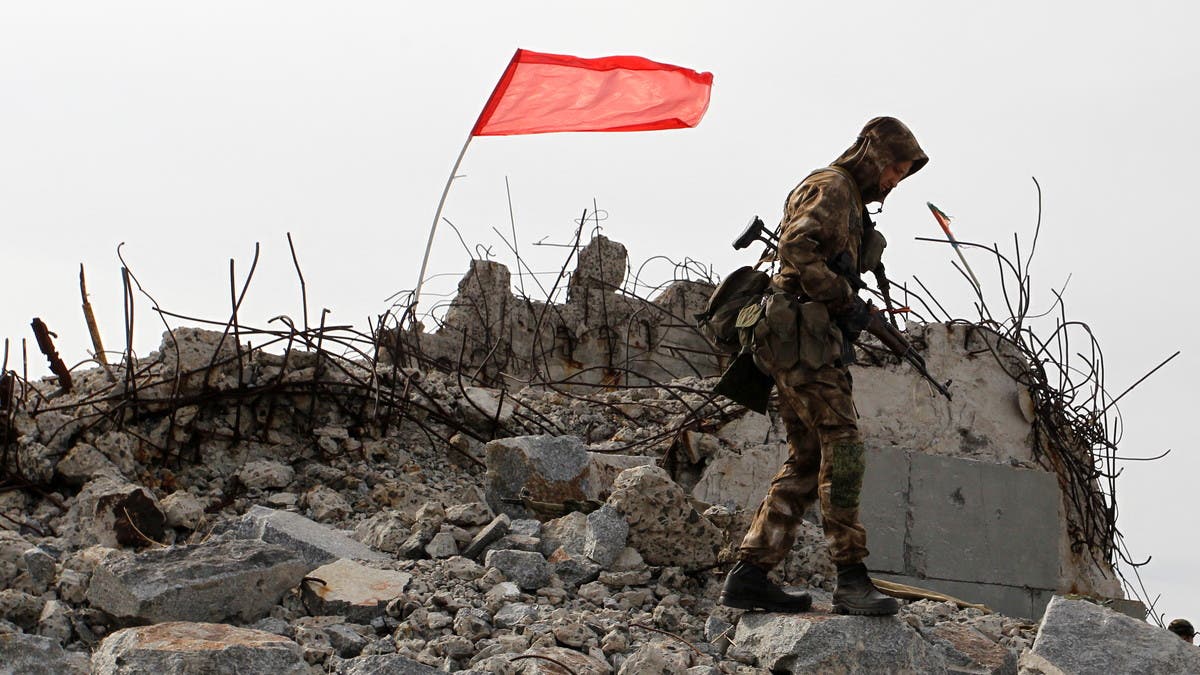A Moscow backed separatist leader was reported by state-run TASS news agency on Tuesday as saying that Russian forces had not advanced as rapidly as they had hoped in the battle for Sievierodonetsk, the easternmost city still in Ukraine's hands.
As the Russian offensive continued across Ukraine's eastern Donbas region, the European Union agreed to ban most imports of Russian oil, a move intended to blow a hole in the Kremlin's war finances.
For all the latest headlines follow our Google News channel online or via the app.
In the bloc's toughest sanction on Moscow since the invasion of Ukraine three months ago, European Council President Charles Michel said the ban agreed at an EU summit in Brussels on Monday would immediately cover more than two-thirds of oil imports from Russia and cut a “huge source of financing for its war machine.”
EU leaders said they had agreed to cut 90% of oil imports from Russia by the end of this year, with exemptions for Hungary – a landlocked country that relies heavily on crude piped from Russia – and others concerned about the ban's economic impact.
They also agreed to cut off the largest Russian bank, Sberbank, from the SWIFT system and to ban three more Russian state-owned broadcasters, Michel added.
The announcement came as Russian forces pushed into key objectives in the Donbas, where Ukrainian President Volodymyr Zelenskiy said the situation remained “extremely difficult”.
Russia has been seeking to seize the entire Donbas, consisting of Luhansk and Donetsk which Moscow claims on behalf of separatist proxies.
Capturing the twin cities of Sievierodonetsk and Lysychansk on the banks of the Siverskyi Donets river would give Moscow effective control of Luhansk and allow the Kremlin to declare some form of victory after more than three months of war.
The leader of the Moscow-backed Luhansk People's Republic, Leonid Pasechnik, told TASS that a third of Sievierodonetsk was “already under our control” but progress less rapid than hoped.
The advance of Russian troops was complicated by the presence of several large chemical plants in the Sievierodonetsk area, TASS reported.
In the south, Kyiv said its forces had pushed back Russian troops to defensive positions in Andriyivka, Lozove and Bilohorka, villages on the southern bank of the Inhulets River that forms the border of Kherson province, where Moscow is trying to consolidate control.
Reuters was unable to independently verify the claims from either side.
Ukraine has called for the West to send more long-range weapons but US President Joe Biden said Washington would not send Ukraine rocket systems that can reach into Russia, a decision Russian Security Council Deputy Chairman Dmitry Medvedev called “rational.”
Zelenskiy said Russian forces shelled the northeastern city of Kharkiv again on Monday, as well as the border region of Sumy, which was hit from inside Russia.
Russian shelling has reduced much of Sievierodonetsk to ruins, but the Ukrainian defense has slowed the wider Russian campaign across the Donbas region.
Luhansk Governor Serhiy Gaidai said Russian troops had advanced into Sievierodonetsk's southeastern and northeastern fringes, but Ukrainian forces had driven them from the village of Toshkivka to the south.
“They use the same tactics over and over again. They shell for several hours – for three, four, five hours – in a row and then attack,” he said. “Those who attack die. Then shelling and attack follow again, and so on until they break through somewhere.”
With temperatures rising, there was a “terrible smell of Death” on the outskirts of Sievierodonetsk, Gaidai said.
Read more:
Assault on Sievierodonetsk taking longer than Russian forces hoped: TASS
EU leaders agree on partial embargo on Russian oil
Bomb hits Russian-occupied Ukraine city of Melitopol: Russian, Ukraine officials

 World3 years ago
World3 years ago
 World3 years ago
World3 years ago
 Business1 year ago
Business1 year ago
 Entertainment7 years ago
Entertainment7 years ago
 World7 years ago
World7 years ago
 Entertainment7 years ago
Entertainment7 years ago






